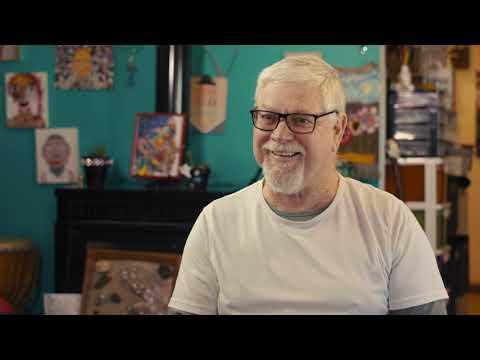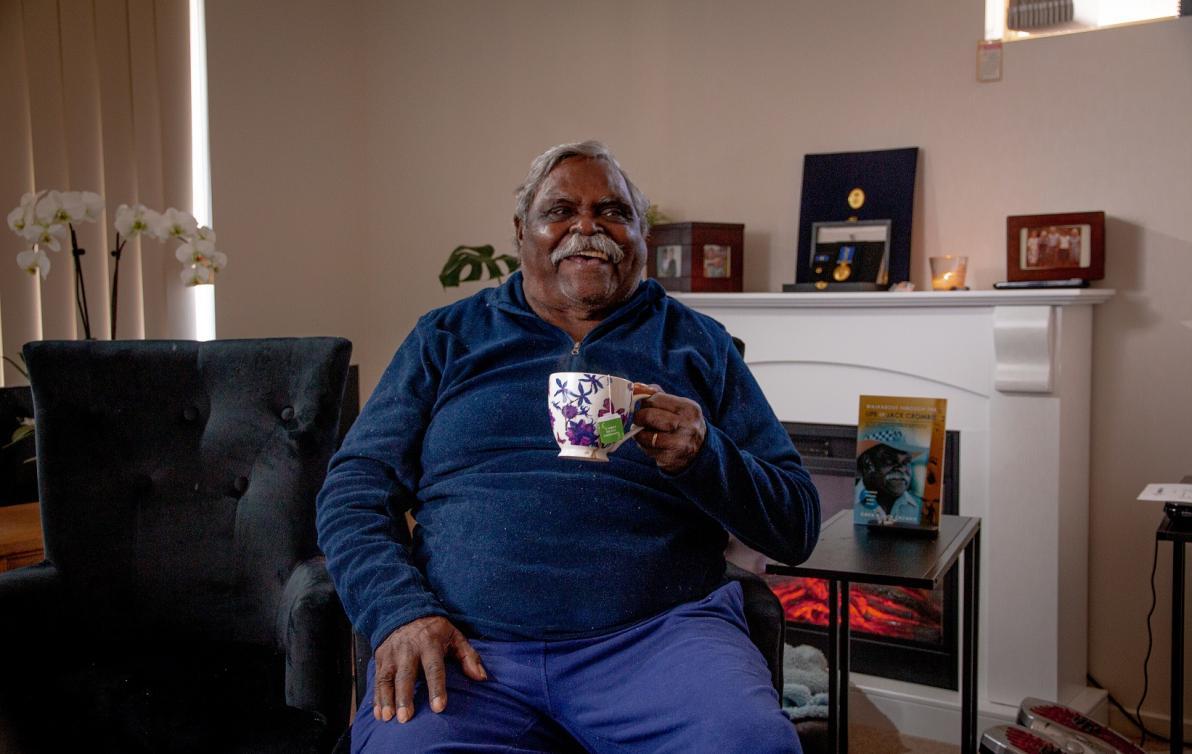Younger onset dementia
If you get a diagnosis of any kind of dementia when you’re younger than 65, it’s called younger onset dementia, or sometimes early onset dementia.
If you’re impacted by younger onset dementia, Dementia Australia is here for you. Explore our information, advice and support, tailored to your needs.

About younger onset dementia
Younger onset dementia isn’t one type of dementia, it can take on many forms. Find out what younger onset dementia is, how diagnosis works and what treatment options you have.
 Younger onset dementia: the facts
Younger onset dementia: the factsYounger onset dementia is any form of dementia diagnosed in people under the age of 65. Learn the facts for people living with younger onset dementia.
 Testing and diagnosis
Testing and diagnosisHow to make the decision to talk to your doctor about changes in your memory, thinking, behaviour and mood, and what tests they might do.
 Treatment and management of dementia
Treatment and management of dementiaAlthough there is no cure for dementia, there are treatments which help you live the best life you can. Learn about common treatments for dementia.
 Types of dementia
Types of dementiaMore than 100 different medical conditions can lead to dementia. Learn more about the symptoms, diagnosis and treatment of common types of dementia.
 Understanding Younger Onset Dementia
Understanding Younger Onset DementiaThese information sessions provide an introduction to younger onset dementia and the unique impacts of a diagnosis of dementia earlier in life.
What next? After your diagnosis
If you've just had a diagnosis of younger onset dementia, it can be hard to know what to do next.
But Dementia Australia is here for you.
Explore our information, advice and support to help you through the early days, and to plan ahead.

Dementia Australia support for younger onset dementia
If you're impacted by younger onset dementia, Dementia Australia is here for you. There are many ways we can help, but here are some specifically designed for you.
 Post-diagnostic support
Post-diagnostic supportDementia Australia offers free support for people of all ages diagnosed with dementia, or people assessed with mild cognitive impairment.
 Counselling
CounsellingDementia Australia offers free, confidential, professional counselling for individuals, families, couples and professional carers at all stages of a dementia journey.
 Family engagement counselling for younger onset dementia
Family engagement counselling for younger onset dementiaDementia Australia’s free counselling service for families where someone lives with younger onset dementia.
 Living With Younger Onset Dementia Program
Living With Younger Onset Dementia ProgramA program for people recently diagnosed with younger onset dementia, including information, advice and support.
 Hold the Moment Podcast
Hold the Moment PodcastDementia Australia's Hold the Moment podcast shares uplifting stories about people living with dementia and their loved ones. Listen online today.
Support for family, friends and carers
Caring for someone living with younger onset dementia can be rewarding, but it can also be challenging. Find information, advice and support specifically designed for you.

National Disability Insurance Scheme (NDIS)
If you’ve been diagnosed with dementia and you’re younger than 65, you might be eligible for support from the Australian government through the National Disability Insurance Scheme (NDIS).
Find out more about the NDIS and how to get started.
For immediate support, call the National Dementia Helpline
1800 100 500Living with younger onset dementia
Dementia can be a very different experience when you’re younger. You’re more likely to be working, living with family and active in other parts of your life. Here are some pages that might be especially relevant to younger people.
 Work and dementia
Work and dementiaDementia can affect your ability to stay in a job. Find out what you can do, your rights and how to make decisions about employment.
 Driving and dementia
Driving and dementiaDementia reduces your ability to drive safely. Learn the warning signs and your options if you need to stop driving.
 Looking after yourself
Looking after yourselfBy looking after your mind and body, you can continue to live the best live you can with dementia and reduce your need for extra care.
 Voting and dementia
Voting and dementiaDementia can affect your ability to vote. Find out how you can be supported to keep voting with dementia in Australia, or choose to stop voting.
If I can give just one person hope, I have done my job.
Dementia-friendly community groups
There are dementia-friendly community groups across Australia. Here are some examples specifically for people impacted by younger onset dementia, but you can browse them all to find one near you.
- Northern Rivers Younger Onset Dementia Carer Support Group
This group meets to support carers of people living with Younger Onset Dementia, we share experiences and stories over a cuppa
All welcome - Townsville Dementia Support Group
The Townsville Dementia Support Group provides helpful strategies to manage the day-to-day symptoms of dementia for people living with dementia and their carer
Don’t know where to start?
If you want a helping hand getting started, the National Dementia Helpline is for you.
We can provide free, trusted information, advice and support, 24 hours a day, seven days a week, 365 days a year.
No issue is too big, no question too small.

More for you
 Connecting Peers
Connecting PeersConnecting Peers, our one-to-one peer support program, connects people living with dementia and carers with peer leaders who’ve been through a similar experience.
 Dementia Advocates Program
Dementia Advocates ProgramThe Dementia Advocates Program is for people living with dementia or mild cognitive impairment, carers and former carers who want to raise awareness, fight stigma and influence decision-makers.

Stay in touch with our newsletter
Subscribe to Dementia Australia’s monthly eNews to receive updates on research and resources, hear stories from people impacted by dementia, and find out what you can do to improve the lives of people living with dementia, their families and carers.
All content published on Dementia Australia’s websites is for information purposes only and does not constitute medical, legal or financial advice. Talk to a qualified professional. Dementia Australia does not accept liability for any injury, loss or damage caused by use of the information on this website.






